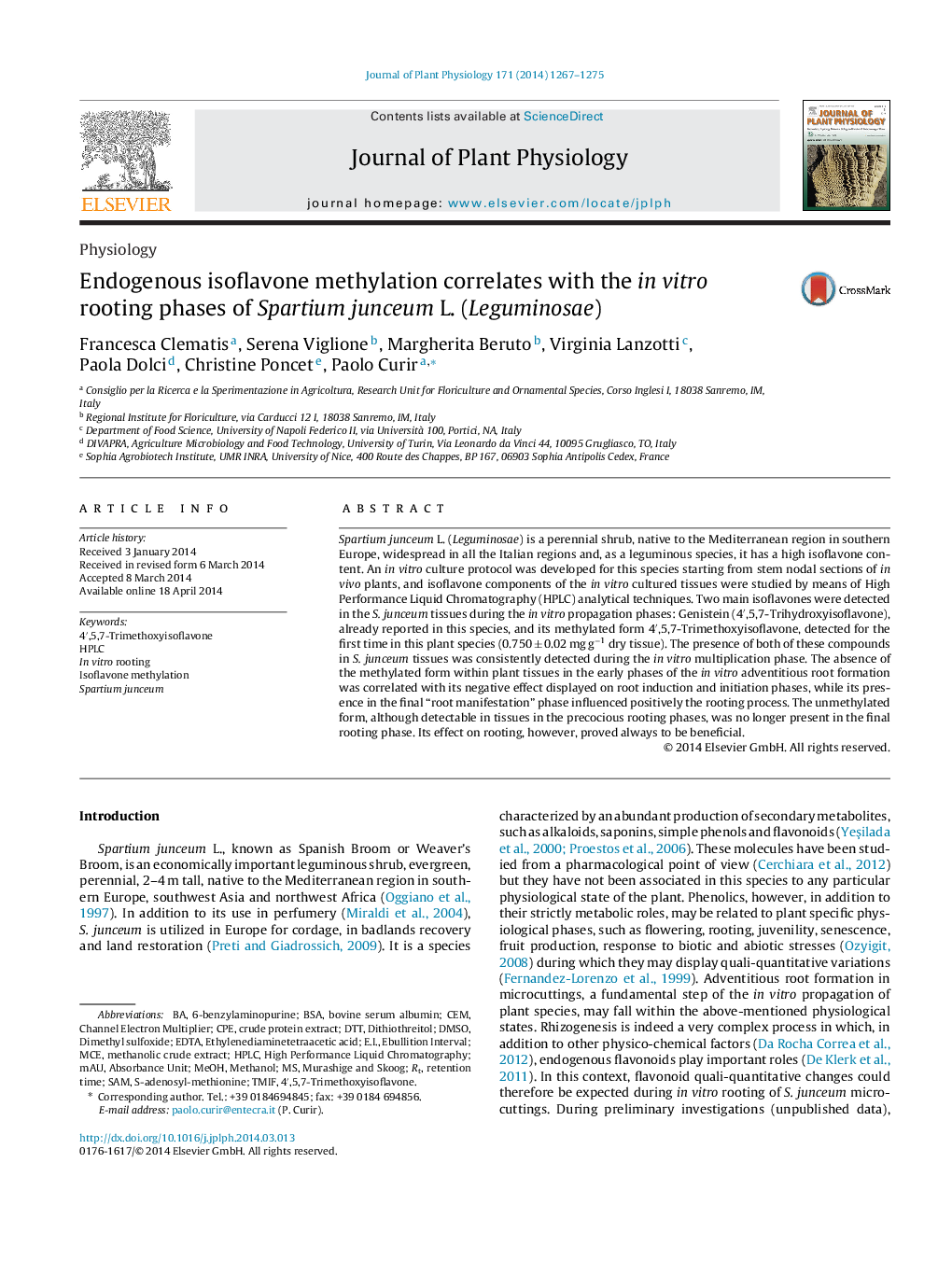| Article ID | Journal | Published Year | Pages | File Type |
|---|---|---|---|---|
| 2055713 | Journal of Plant Physiology | 2014 | 9 Pages |
Spartium junceum L. (Leguminosae) is a perennial shrub, native to the Mediterranean region in southern Europe, widespread in all the Italian regions and, as a leguminous species, it has a high isoflavone content. An in vitro culture protocol was developed for this species starting from stem nodal sections of in vivo plants, and isoflavone components of the in vitro cultured tissues were studied by means of High Performance Liquid Chromatography (HPLC) analytical techniques. Two main isoflavones were detected in the S. junceum tissues during the in vitro propagation phases: Genistein (4′,5,7-Trihydroxyisoflavone), already reported in this species, and its methylated form 4′,5,7-Trimethoxyisoflavone, detected for the first time in this plant species (0.750 ± 0.02 mg g−1 dry tissue). The presence of both of these compounds in S. junceum tissues was consistently detected during the in vitro multiplication phase. The absence of the methylated form within plant tissues in the early phases of the in vitro adventitious root formation was correlated with its negative effect displayed on root induction and initiation phases, while its presence in the final “root manifestation” phase influenced positively the rooting process. The unmethylated form, although detectable in tissues in the precocious rooting phases, was no longer present in the final rooting phase. Its effect on rooting, however, proved always to be beneficial.
